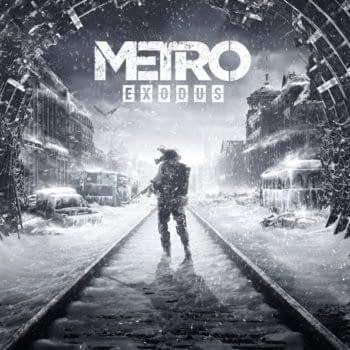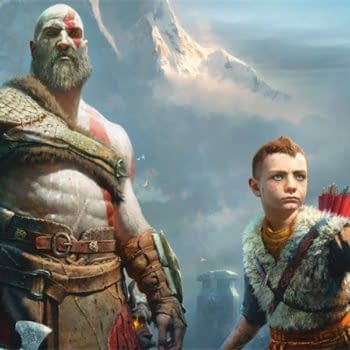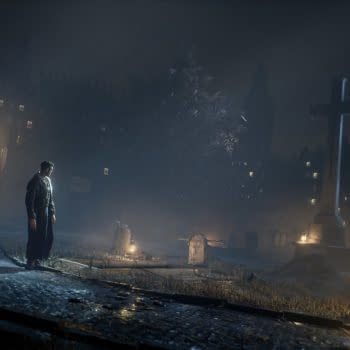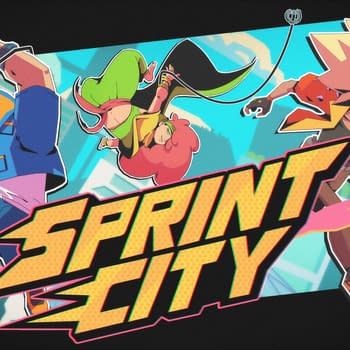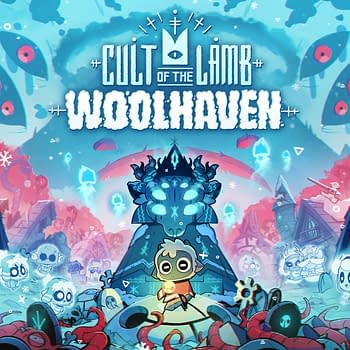Posted in: Games, Review, Video Games | Tagged: entertainment, games, insomniac games, marvel's spider-man, sony, spider-man, video games
Marvel's Spider-Man Review: How the Spider Found His Spirit
There have been a lot of Spider-Man games. For nearly as long as video games have been around, game developers have been trying to find a way to put players in the shoes of Peter Parker. Since 1982's Spider-Man for the Atari 2600 to today, a quick trip to Wikipedia will show you that there has always been a fascination with the hero in the medium. Sadly, the number of those titles that are actually 'great' is restricted to probably just one hand. While many were (just) on the side of good, that feeling of being Spider-Man has never quite been fully realised. The longest shadow that looms over the hero's video game escapades is undoubtedly Spider-Man 2 for the PlayStation 2, but the even longer spectre over the entire genre of superhero games is the Batman Arkham series. Nothing has come anywhere near as close to replicating the experience of being a hero than in that series.
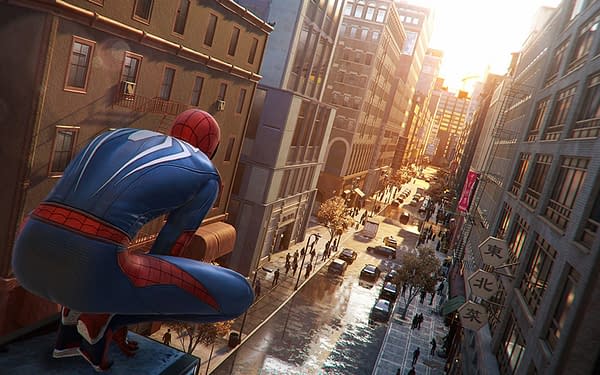
Or rather, nothing had. With Marvel's Spider-Man, Insomniac has put together a special experience that truly puts you inside the suit of the web-slinger. Not only is it the best Spider-Man game ever by quite some margin, but it's one of Spider-Man's greatest adventures outside of the comic-books, ever.
The game opens with Peter Parker in his 'trying to figure it out' early 20s. In an inspired move, it's revealed that he has been Spider-Man for over 8 years at this point, and because of that, there is a lot of menial history that is glossed over. We don't have to play through Uncle Ben's death of the spider bite, nor that awkward period of Peter trying to figure out his powers. He is Spider-Man, and we are jumping into his prime. While it takes time to get a bearing on where everyone is (he's been warring with Wilson Fisk, but he works for a non-octopus Dr Otto Octavious, for example), this approach really glosses over some of the baggage of any origin story. Between splitting his time working, helping Aunt May at the FEAST shelter, dealing with a breakup with Mary-Jane, doing his Spider-Manning and just trying to figure out how to be a functioning adult, Peter's attention is torn between several responsibilities. After putting away Wilson Fisk, it seems his crime-fighting side is on the up though and that at least when it comes to being his hero alter-ego, Peter has it under control.
That is until Fisk being behind bars starts a power vacuum, with a new Chinese faction called Demons coming in and gobbling up territory. We soon learn that at the centre of this gang is a brand new villain called Mister Negative, who has a personal connection with Peter. Sticking the landing on new heroes in a very established universe is always tricky but Insomniac do a great job through (most) of the game with their new creation. He is a nuanced villain who turns out to have surprisingly good qualities on top of a capacity to commit some truly terrible acts. Giving him a personal connection is a key here, as it ties together the idea of Peter's responsibilities as a person and as Spider-Man being a spinning plates act that is about ready to come tumbling down.
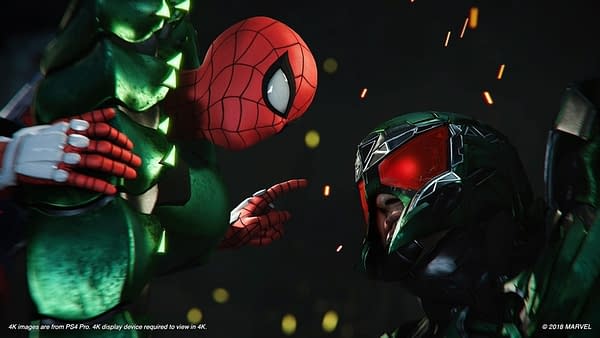
The story really is a great mainstream hero affair, up there with the likes of Marvel's Cinematic Universe. It's fun and light most of the time but shows a real aptitude for bringing a serious and important tone shift when it needs too. Much like Sam Raimi's Spider-Man 2, the most effective parts of the story aren't so much when he is fighting atop buildings putting thugs down, but rather when he deals with the every-day implications of having to be Spider-Man. His recent breakup with Mary Jane and them trying to navigate the pitfalls of that 'post-split, but still friends' minefield is as important and well realised as anything else in the game. It gives a real human element to the title that goes far in crafting a story about the humanity of these characters and their pursuits to do good.
Where the story falters a little bit is in its latter parts which take a rather intense turn. At the start of Act 3, the game changes focus pretty quickly into something else, with new stakes and progression. It's an exciting shift and really turns the title into something ripped from the comic books, but so much happens and the focus on the first two chapters change so much it almost feels like the game has its own sequel in the middle of it. Like I said, a lot of cool, Spider-Man centric things happen in that portion of the game, but there is so much to get through that it makes the story feel truncated. Not to give anything away, but the antagonistic forces change and the story of the third act feels imbalanced compared to what came before and even undersell the characters the previous acts built up. That said, the game does wrap up in a very satisfying way that does return to the important parts of the story and pays everything off with smart writing and moments full to the brim with empathy. When you do finally hit credits, it leaves players on an important and poignant note which is more than you can say for most games.
Of course, all of that would mean nothing if not for the moment to moment of the game. It's no secret that the success of a modern Spider-Man game lives or dies on the movement, and frankly, well, it's excellent here. Insomniac Games show their pedigree in this regard, with their previous titles (most prominently Sunset Overdrive) having a real focus on unique and exciting ways to get around an open-world. It's hard to convey just how good it feels to move New York, but from the mechanics to the music to the slight rumble in your control that suggests when you should let go of your swing, it all come together to make a truly exhilarating experience. You will rarely ever use fast travel in the game due to the joy of getting around never quite ceasing. The act of web-slinging isn't hard to get your head around either, with you essentially just deciding when to let go of the swing. Mechanically you are not actually doing much. However, the game's heavy lifting really helps to sell the experience. The fact that your webs stick to actual buildings and your momentum coming from that placement, to the adaptive and impressive animation that twists and turns Spidey from swing to swing, there is a real authenticity to the experience that hasn't even been close to matched in previous games featuring the hero. In terms of your input, it's not intensive, but Insomniac has really weaved a beautiful magic show that only cares about one thing: you buying into the feeling. And, you will. I promise you will.
When you aren't doing story missions, you will be using that swinging to pick up a bevvy of side-missions. I mean it too. There is a huge range of side distractions to sink your teeth into from finding old hidden backpacks, following Black Cat's clues, bases to clear out, random street crime, towers to unlock and run-ins with the certain bomb-makers. Most are unique and have their own flavour, such as the Research Stations, which focus on platforming and mobility. By the end of the game, your map will be a mess of small icons, but Insomniac is clever with how this is implemented. Each type of activity is slowly rolled out over the course of your playthrough. You will be in the final act of the game and still be getting new types of tasks to complete. It's a clever way to not overwhelm players early on with a busy map. In the grand scheme of things, nothing here is new or revolutionary. It's mostly open world busywork to keep you swinging around New York, but at the very least it is dolled out manageably and gives you a reason to want to keep using the excellent mobility around the space.
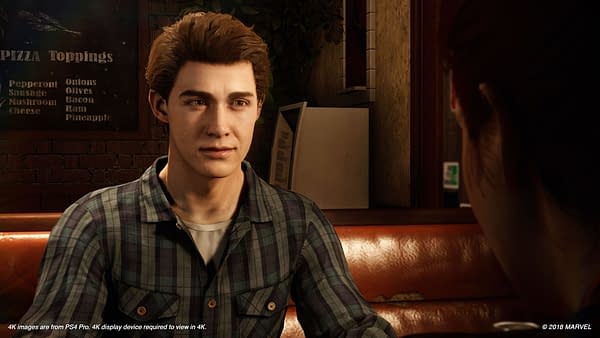
Combat is a little more complicated though. For the most part, if you have played the Arkham games, you will understand what is going on here. You use mostly one hit button as a base, rack up a combo and counter moves when bad guys try to hit you. What sets Spider-Man apart is the long list of button combos and abilities you can call on. There is a huge diversity of attacks you can learn through the skill tree, but while the depth is appreciated, it's can be a little much. The amount of options at your disposal at any one time is more than you can keep in your mind and act on in a split-second's notice without a period of study and application. Are you going to throw a grenade back, web a man, use your Spider-Bro, take a man and swing them around in a circle, build your focus meter by using air-attacks, use finishers? You have a lot of choices, but inevitably a large portion of it falls to the wayside as you get comfortable with just a few moves. It makes the moveset feel a little bloated and if you take a few days off, you will undoubtedly have a decent period of time trying to remember how to pull off everything you like.
The prevalence of guns, shields, men you can't use tools on, men with whips, flying-men and, of course, big-men make sure that there is a diversity to who you are fighting but add a second level of complexity to your knowledge of the moveset. As you fling from one enemy to another, half the moves you used on one type of enemy may no longer be applicable on the next person you are about to jump to. Some of the characters aren't that easy to tell apart, or it can be tricky to hit the exact target you intend to. This means the moveset can become harder still as you try to juggle all these combos and alterations only to find you've ruined your combo because you didn't realise your next target could counter you with an electric stick you didn't see after a finishing animation. I'm sure, once you've mastered combat, this diversity will become exceptional, but even by the story's end, I was struggling to get the kinds of flawless wave combos I craved. The depth is excellent, I just wish the game did more to encourage you to understand everything you have at your disposal more often.
At the end of the day, I was surprised by Marvel's Spider-Man. I, of course, shouldn't have been. Insomniac is a top-tier developer, especially when put onto open-world games with unique movement abilities and Sony rarely makes lacklustre AAA tentpole games. That said, Spider-Man games have been middling for so long, the worry was that this would be a little safe. An expensive exercise in mechanics and movements… and to be fair, it is that. However, the sheer level of polish on display, the world and the engine's dedication to making you feel like Spider-Man is something special to behold. You can literally feel Insomniac underneath you, weaving this elaborate illusion that is so easy to get lost in. Even in those moments where you step back, is impossible not to admire the excellent work the developer has done. Perhaps most of all though, I was struck by how much the story felt like one of the best mainstream Spider-Man stories I'd seen. It covers a lot, and especially towards the end, feels like it shoves a little too much into a short space of time. Yet, it has a real focus on the human side of Peter and that is what gives the game its soul. The best Marvel Cinematic Universe movies have great action but make us care most about the core of who these people are. Insomniac knew who Peter Parker was. From the story to the webswinging to the world he inhabits, Marvel's Spider-Man gets it. It just gets it.




